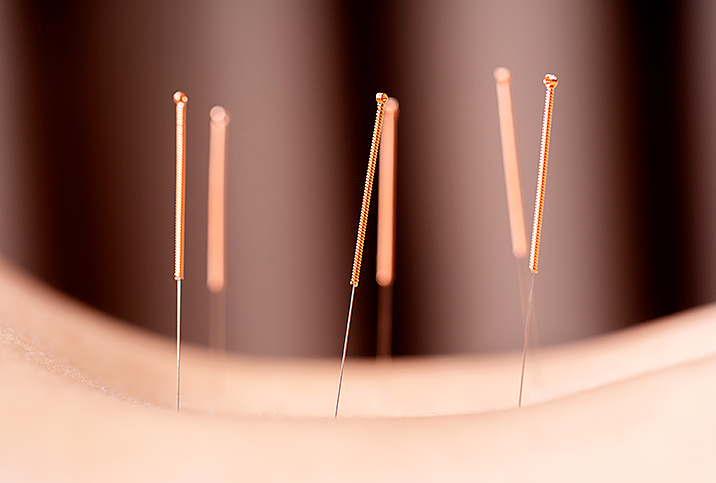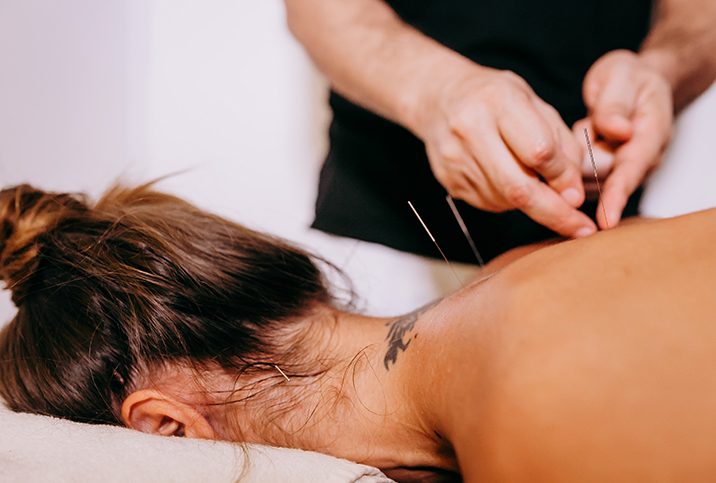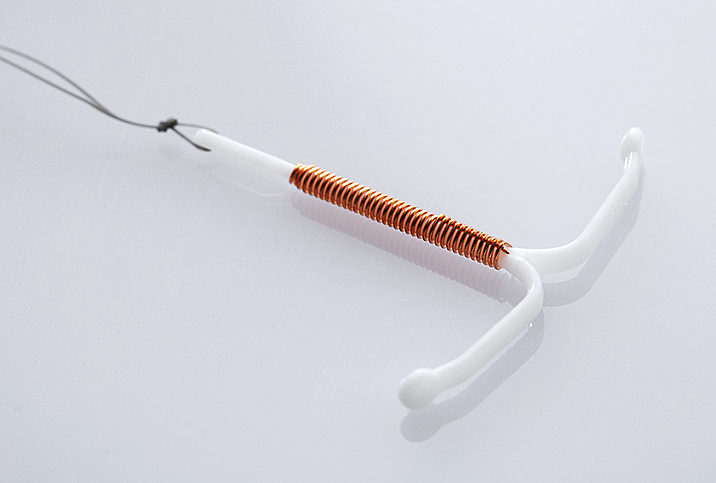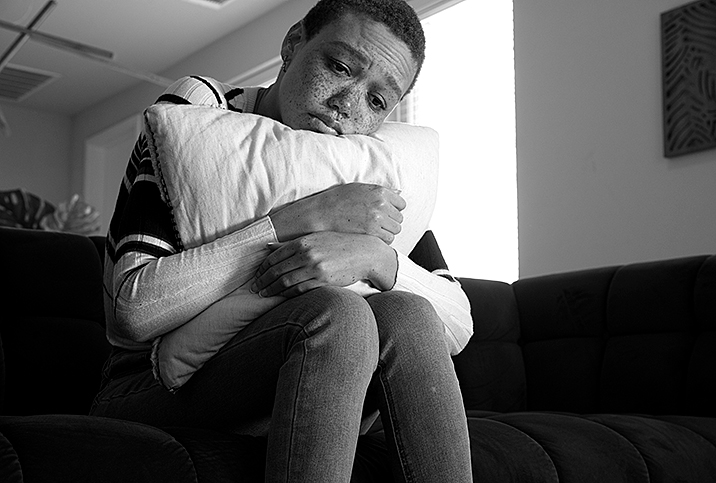Can Acupuncture Treat Period Pain?

If your monthly cramps are debilitatingly painful, typical DIY techniques and over-the-counter meds may offer little respite. Fortunately, research shows acupuncture might be a solution.
Painful periods, or dysmenorrhea, affect more than half of menstruating people. The condition is characterized by severe, frequent cramps and pain during menstruation, often accompanied by lower back pain, nausea or vomiting, digestive upset, fatigue, headaches and weakness.
Dysmenorrhea can be categorized in two ways: primary dysmenorrhea (painful periods without an identifiable underlying cause) and secondary dysmenorrhea (painful periods due to an underlying condition, such as endometriosis, adenomyosis or fibroids). Acupuncture has been shown to help treat both primary and secondary dysmenorrhea in certain cases, but seeing your general practitioner for a diagnosis is the first step.
What is acupuncture?
Acupuncture has been practiced for more than 3,000 years to treat a broad array of conditions, including menstrual health issues. A growing body of scientific research supports its efficacy for certain conditions.
The traditional Chinese medicine practice involves inserting tiny, thin needles at various points in the body to stimulate energy and blood flow to corresponding areas, explained Jamie Bacharach, Dpl.Ac. It aims to address an ailment's underlying cause to produce long-term solutions, rather than simply assuaging symptoms.
"Acupuncture is based on the idea that the body is connected by thousands of meridians, or pathways, that create a flow of energy, or qi, throughout the body," Bacharach explained. "This is a tenet of traditional Chinese medicine. When this flow is disrupted, illness may follow. By correcting the flow of qi, acupuncture can thereby remedy the resulting illness.
"In terms of modern science," she continued, "acupuncture stimulations are known to be capable of triggering the release of beneficial hormones, promoting healthy blood flow, and stimulating the central nervous system. Rather than thinking in terms of meridians and qi, it is believed that acupuncture needles may stimulate nerves within the body, which sends signals to the brain, resulting in the release of beneficial hormones."
Acupuncture and your period
Ellie Heintze, N.D., L.Ac., explained that Chinese medicine classifies ailments a bit differently than Western medicine. Practitioners group symptoms into patterns and provide a diagnosis after examining the patient and assessing those symptoms.
"One of the common diagnoses for period pain is blood stagnation, meaning blood is not moving freely, which creates the pain felt during or before menses," Heintze said.
Tom Ingegno, D.A.C.M., M.S.O.M., L.Ac., who has more than 20 years of experience treating people with period pain and other menstrual issues, explained that "stagnant blood" denotes inflammation.
"Needles that are applied locally cause what the Japanese call an 'artificial splinter' effect. Anytime something penetrates your skin, whether a sterile needle or a sliver of wood, your body rushes fresh blood to the area to repair that tissue," Ingegno said. "With a sterile acupuncture needle, there isn't much to repair so the blood can nourish surrounding tissue. To make this happen, blood vessels open, carrying old blood with metabolic waste, low oxygen and inflammatory compounds out of the area while bringing fresh, nutrient-dense and oxygenated blood in."
According to Heintze, along with stimulating blood flow, acupuncture can trigger the release of certain neurotransmitters, including endorphins, the same "feel-good hormones" produced during exercise. "Endorphins can reduce pain and our perception of pain because of how they bind and interact with the opiate receptors in the brain," she said.
"Acupuncture can also promote the release of serotonin, a hormone key in stabilizing mood and feelings of well-being, which can similarly help to relieve pain," added Natalie Mich, L.Ac.
Tips for successful treatment
As with many medicines, acupuncture works best as a preventive measure and is not a quick fix. Typically, Heintze said, treatment to target hormones and diminish period pain involves a minimum of three months of care with one to two weekly sessions. But recommendations vary from one person to another, based on factors including health history, underlying medical conditions and symptom severity.
"Acute cramping can be relieved within one session, but acupuncture is a therapy and usually works better to maintain health than to be a 'last-ditch' effort," Ingegno said.
As for what type of acupuncture is best for period pain relief, experts say research indicates several techniques, including manual and electroacupuncture, appear to be equally effective.
The most important factor is to work with an acupuncturist experienced in treating menstrual issues.
"Women deserve to feel healthy and strong every week of the month," Mich said. "I recommend seeing an acupuncturist who specializes in treating women's health conditions and painful periods because patients will get the best results when they work with someone who is highly skilled in treating their condition."


















